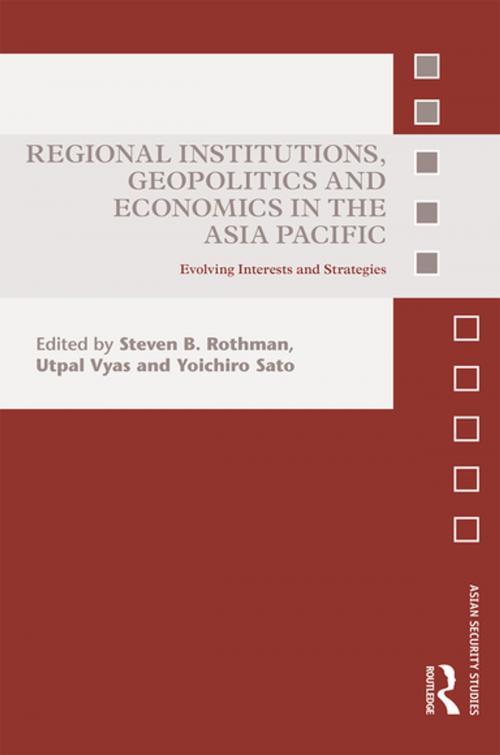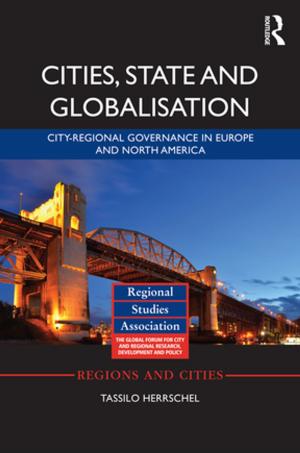Regional Institutions, Geopolitics and Economics in the Asia-Pacific
Evolving Interests and Strategies
Nonfiction, History, Military| Author: | ISBN: | 9781351968560 | |
| Publisher: | Taylor and Francis | Publication: | April 21, 2017 |
| Imprint: | Routledge | Language: | English |
| Author: | |
| ISBN: | 9781351968560 |
| Publisher: | Taylor and Francis |
| Publication: | April 21, 2017 |
| Imprint: | Routledge |
| Language: | English |
This volume discusses the relationship between economics, geopolitics and regional institutional growth and development in the Asia-Pacific region.
How do states (re)define their relationships amid the current global power transition? How do rival actors influence the rules and formation of new institutions for their own benefit? What role will institutions take as independent actors in influencing and constraining the behavior of states? Institutional development in Asia is characterized by idiosyncratic and diverse motivations (both material and non-material), a variety of policy strategies (strategic and norm-based), and the looming question of China’s future depth of involvement as its economic position becomes more stable and its confidence in foreign affairs grows. The book reflects the broadening definition of Asia by examining multiple perspectives, including Japan, China, South Korea, the United States, Australia, India, Russia, and Taiwan. In addition to state actors, the contributors address several important regional institutions in development such as the ASEAN (+3, +6, and the East Asian Summit), the Asian Infrastructure Investment Bank (AIIB), the Asian Development Bank (ADB), existing security alliances, and other bilateral institutions. Ultimately, this volume describes the unique, slow, and diverse growth of a multitude of regional institutions, the complexities of generating cooperation, membership concerns, and competition between states and with existing institutions in the context of China’s increasing confidence and strength.
This book will be of much interest to students of Asian politics, regional security, international organizations, and foreign policy.
This volume discusses the relationship between economics, geopolitics and regional institutional growth and development in the Asia-Pacific region.
How do states (re)define their relationships amid the current global power transition? How do rival actors influence the rules and formation of new institutions for their own benefit? What role will institutions take as independent actors in influencing and constraining the behavior of states? Institutional development in Asia is characterized by idiosyncratic and diverse motivations (both material and non-material), a variety of policy strategies (strategic and norm-based), and the looming question of China’s future depth of involvement as its economic position becomes more stable and its confidence in foreign affairs grows. The book reflects the broadening definition of Asia by examining multiple perspectives, including Japan, China, South Korea, the United States, Australia, India, Russia, and Taiwan. In addition to state actors, the contributors address several important regional institutions in development such as the ASEAN (+3, +6, and the East Asian Summit), the Asian Infrastructure Investment Bank (AIIB), the Asian Development Bank (ADB), existing security alliances, and other bilateral institutions. Ultimately, this volume describes the unique, slow, and diverse growth of a multitude of regional institutions, the complexities of generating cooperation, membership concerns, and competition between states and with existing institutions in the context of China’s increasing confidence and strength.
This book will be of much interest to students of Asian politics, regional security, international organizations, and foreign policy.















